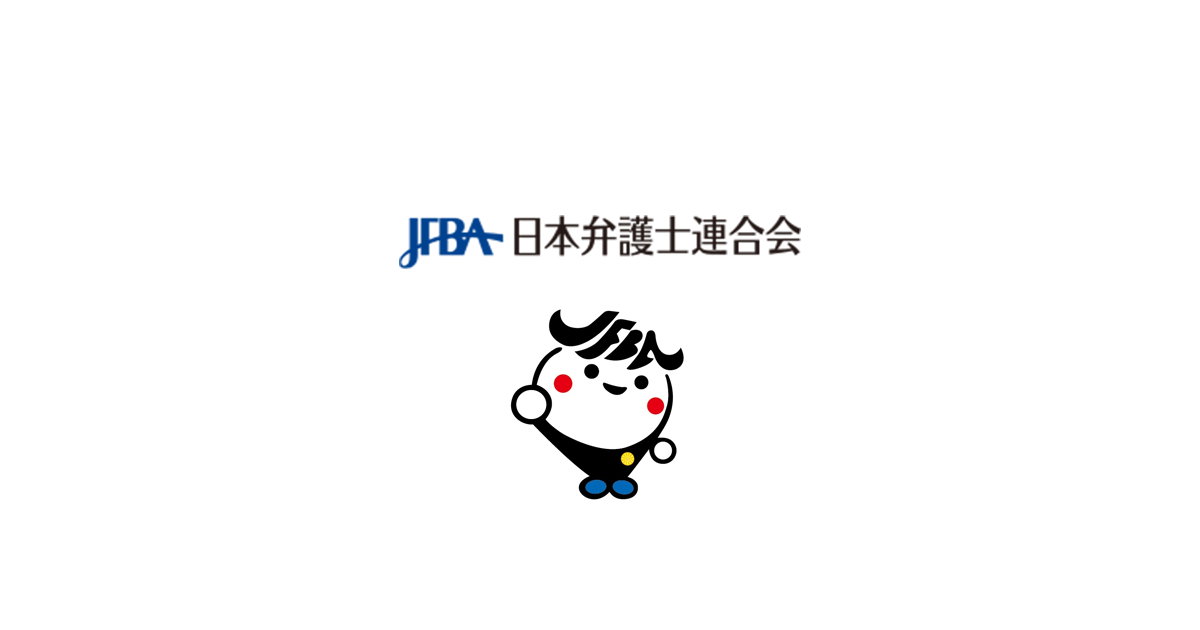”知って得する日本国憲法と国際人権条約”
ねえ、しってる?
その1 ヨーロッパ委員会本部があるベルギーでは、こどもたちが小学校に入学すると、まず最初に教えられることって な~に?
それはね ”こどもの権利条約” 👀(*^-^*)
みなさんには、こどもの権利条約で、こういう人権が保障されているんですよ
はじめまして (=^・^=)
当ブログにご訪問いただき、ありがとうございます。
いいね、コメント ありがとうございます (*^-^*)
おかげさまで”こころの旅 2024 peace9” 第4期無事出発できました💦💦
2011年3・11福島核惨害と東日本大震災を機に、同年5月30日、 プロジェクトピース9 を国連に申請。
1年間FAX書類審査後、翌2012年5月、
NY国連本部NGO委員会にて
世界各国・数百のNGO申請が、
月から金曜日まで 5日間
毎日毎日、国連経済社会理事会特別協議資格 審査、
その初日、トップバッターで👀・・・
YOUR APRICATION IS VERY GOOD!
1回目の審査で pass 💦 💦 💦 💦 💦
ことし4回目の更新を完了しましたが、
しかし、岸田自公内閣は、こどもの権利条約と2つのこどもの権利条約選択議定書の個人通報制度批准も、拷問等禁止条約第22条留保撤回も拒絶し続けているため、憲法9条を持つ日本は未だ人権鎖国状態で、多くのこどもたちが自殺しています。
日本国憲法第9条を持つ日本において、「批准済みの人権条約に備わっている個人通報制度を批准する」と閣議決定(内閣受諾宣言)するだけで、人権条約本体に定めのある「拷問等禁止条約」「強制失踪条約(拉致被害)」「人種差別撤廃条約」の個人通報制度を導入することができます。
その結果、第2次世界大戦侵略国日本において、法の支配を実現し、イスラエルによるパレスチナ・ガザに対する虐殺を止めることができます😿
世界中のこどもたちとあなたの命を守るために、岸田自公内閣に対し、「ただちに、批准済みの人権条約に備わっている個人通報制度を批准する と閣議決定せよ❕」の声を広げ、法の支配を実現しましょう。
ご質問ご意見… コメント欄にどうぞ (=^・^=)
🍃 🍃 🍃
日本政府は、
日本国憲法98条 第2項
国際人権規約 他 全部で、8つの人権条約を批准しています。
こどもの権利条約
第1項
本条約の適用上、こどもとは、当該こどもに適用される法律により早期に成年に達した場合を除き、18歳未満のすべての人間をいう
For the purposes of the present Convention, a child means every human being below the age of eighteen years unless under the law applicable to the child, majority is attained earlier.
こどもの権利条約
前 文
この条約の締約国は、
国際連合憲章において宣明された原則によれば、人類社会のすべての構成員の固有の尊厳及び平等のかつ奪い得ない権利を認めることが世界における自由、正義及び平和の基礎を成すものであることを考慮し、
国際連合加盟国の国民が、国際連合憲章において、基本的人権並びに人間の尊厳及び価値に関する信念を改めて確認し、かつ、一層大きな自由の中で社会的進歩及び生活水準の向上を促進することを決意したことに留意し、
国際連合が、世界人権宣言及び人権に関する国際規約において、すべての人は人種、皮膚の色、性、言語、宗教、政治的意見その他の意見、国民的若しくは社会的出身、財産、出生又は他の地位等によるいかなる差別もなしに同宣言及び同規約に掲げるすべての権利及び自由を享有することができることを宣明し及び合意したことを認め、
国際連合が、世界人権宣言において、児童は特別な保護及び援助についての権利を享有することができることを宣明したことを想起し、
家族が、社会の基礎的な集団として、並びに家族のすべての構成員、特に、児童の成長及び福祉のための自然な環境として、社会においてその責任を十分に引き受けることができるよう必要な保護及び援助を与えられるべきであることを確信し、
児童が、その人格の完全なかつ調和のとれた発達のため、家庭環境の下で幸福、愛情及び理解のある雰囲気の中で成長すべきであることを認め、
児童が、社会において個人として生活するため十分な準備が整えられるべきであり、かつ、国際連合憲章において宣明された理想の精神並びに特に平和、尊厳、寛容、自由、平等及び連帯の精神に従って育てられるべきであることを考慮し、
児童に対して特別な保護を与えることの必要性が、1924年の児童の権利に関するジュネーヴ宣言及び1959年11月20日に国際連合総会で採択された児童の権利に関する宣言において述べられており、また、世界人権宣言、市民的及び政治的権利に関する国際規約(特に第23条及び第24条)、経済的、社会的及び文化的権利に関する国際規約(特に第10条)並びに児童の福祉に関係する専門機関及び国際機関の規程及び関係文書において認められていることに留意し、
児童の権利に関する宣言において示されているとおり「児童は、身体的及び精神的に未熟であるため、その出生の前後において、適当な法的保護を含む特別な保護及び世話を必要とする。」ことに留意し、
国内の又は国際的な里親委託及び養子縁組を特に考慮した児童の保護及び福祉についての社会的及び法的な原則に関する宣言、少年司法の運用のための国際連合最低基準規則(北京規則)及び緊急事態及び武力紛争における女子及び児童の保護に関する宣言の規定を想起し、
極めて困難な条件の下で生活している児童が世界のすべての国に存在すること、また、このような児童が特別の配慮を必要としていることを認め、
児童の保護及び調和のとれた発達のために各人民の伝統及び文化的価値が有する重要性を十分に考慮し、
あらゆる国特に開発途上国における児童の生活条件を改善するために国際協力が重要であることを認めて、
次のとおり協定した。
第1部
第1条
この条約の適用上、児童とは、18歳未満のすべての者をいう。ただし、当該児童で、その者に適用される法律によりより早く成年に達したものを除く。
Convention on the Rights of the Child Adopted and opened for signature, ratification and accession by General Assembly resolution 44/25 of 20 November 1989
Preamble
The States Parties to the present Convention,
Considering that, in accordance with the principles proclaimed in the Charter of the United Nations, recognition of the inherent dignity and of the equal and inalienable rights of all members of the human family is the foundation of freedom, justice and peace in the world,
Bearing in mind that the peoples of the United Nations have, in the Charter, reaffirmed their faith in fundamental human rights and in the dignity and worth of the human person, and have determined to promote social progress and better standards of life in larger freedom,
Recognizing that the United Nations has, in the Universal Declaration of Human Rights and in the International Covenants on Human Rights, proclaimed and agreed that everyone is entitled to all the rights and freedoms set forth therein, without distinction of any kind, such as race, colour, sex, language, religion, political or other opinion, national or social origin, property, birth or other status,
Recalling that, in the Universal Declaration of Human Rights, the United Nations has proclaimed that childhood is entitled to special care and assistance,
Convinced that the family, as the fundamental group of society and the natural environment for the growth and well-being of all its members and particularly children, should be afforded the necessary protection and assistance so that it can fully assume its responsibilities within the community,
Recognizing that the child, for the full and harmonious development of his or her personality, should grow up in a family environment, in an atmosphere of happiness, love and understanding,
Considering that the child should be fully prepared to live an individual life in society, and brought up in the spirit of the ideals proclaimed in the Charter of the United Nations, and in particular in the spirit of peace, dignity, tolerance, freedom, equality and solidarity,
Bearing in mind that the need to extend particular care to the child has been stated in the Geneva Declaration of the Rights of the Child of 1924 and in the Declaration of the Rights of the Child adopted by the General Assembly on 20 November 1959 and recognized in the Universal Declaration of Human Rights, in the International Covenant on Civil and Political Rights (in particular in articles 23 and 24), in the International Covenant on Economic, Social and Cultural Rights (in particular in article 10) and in the statutes and relevant instruments of specialized agencies and international organizations concerned with the welfare of children,
Bearing in mind that, as indicated in the Declaration of the Rights of the Child, "the child, by reason of his physical and mental immaturity, needs special safeguards and care, including appropriate legal protection, before as well as after birth",
Recalling the provisions of the Declaration on Social and Legal Principles relating to the Protection and Welfare of Children, with Special Reference to Foster Placement and Adoption Nationally and Internationally; the United Nations Standard Minimum Rules for the Administration of Juvenile Justice (The Beijing Rules) ; and the Declaration on the Protection of Women and Children in Emergency and Armed Conflict,
Recognizing that, in all countries in the world, there are children living in exceptionally difficult conditions, and that such children need special consideration,
Taking due account of the importance of the traditions and cultural values of each people for the protection and harmonious development of the child,
Recognizing the importance of international co-operation for improving the living conditions of children in every country, in particular in the developing countries,
Have agreed as follows:
PART I
Article 1
For the purposes of the present Convention, a child means every human being below the age of eighteen years unless under the law applicable to the child, majority is attained earlier.

